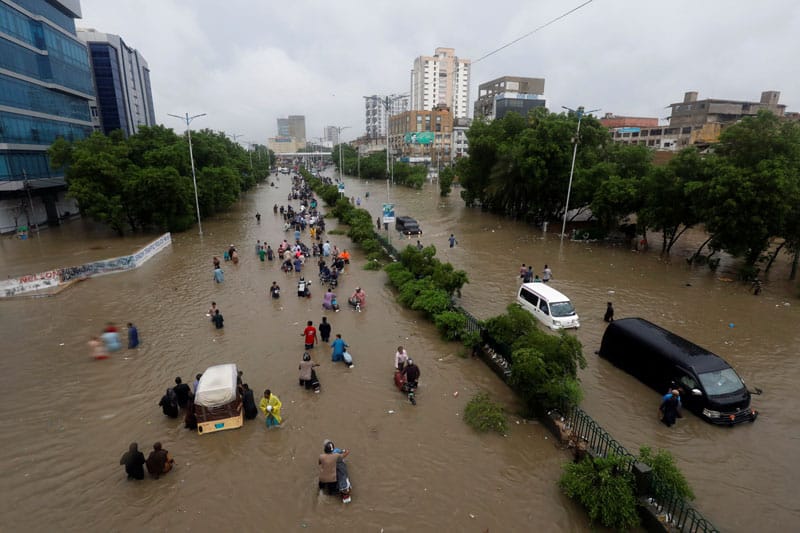September 1st marks the World Day of Prayer for the Care of Creation.
By Cindy Wooden, Catholic News Service
VATICAN CITY (CNS) — Catholics will mark the World Day of Migrants and Refugees during the ecumenical celebration of the Season of Creation, highlighting the obligation, as Pope Francis says, to listen to the cry of the earth and the cry of the poor, said Canadian Cardinal Michael Czerny.
“With Pope Francis, we hope to come out of the COVID crisis better than before: more welcoming, more cooperative, more sharing, more attentive to the needs of our common home and everyone in it, and closer to our loving God and creator,” said the cardinal, who is undersecretary at the Migrants and Refugees Section of the Dicastery for Promoting Integral Human Development.
The Catholic Church and Christians around the world mark Sept. 1 as the World Day of Prayer for the Care of Creation and celebrate the Season of Creation from that date through Oct. 4, the feast of St. Francis of Assisi. The World Day of Migrants and Refugees is Sept. 27.
The “common thread” among the celebrations, especially in 2020, the cardinal said, “is our common home in which the cry of the earth and the cry of the poor are one cry.”
“Among those forced to flee are those driven from their homes by the climate crisis, which takes many different forms around the world: fires, flooding, drought, storms, etc.,” the cardinal told Catholic News Service Aug. 26.

And, he noted that in Pope Francis’ message for the World Day of Migrants and Refugees, he wrote: “To preserve our common home and make it conform more and more to God’s original plan, we must commit ourselves to ensuring international cooperation, global solidarity and local commitment, leaving no one excluded.”
“Clearly,” the cardinal said, “these words apply with equal precision and urgency to how everyone needs to respond to threats to our natural environment” and not just to the situation of migrants and refugees.
The COVID-19 pandemic and, especially, the lockdowns it brought also shined a light on the connections between the health of the environment and the phenomena of millions of people forced from their homes seeking peace, security and a better life for themselves and their families, Cardinal Czerny said.
“During the COVID lockdown, people discovered that basic and essential services were often provided by foreign seasonal workers and recently arrived refugees and migrants,” he said. “These include utter necessities like healthcare, food, maintenance, security, deliveries, etc. etc.”
“We didn’t notice” those workers; “we took them for granted until COVID stopped them from working or even coming,” he said.
And, the cardinal said, “We have been equally oblivious to the bounty of nature: we have taken the environment for granted, until human interference in the forms of pollution and careless extraction, production and consumption stopped nature from giving us what we need.”
“The two situations are more than parallels; they connect concretely in the area of food production,” he said. “The need for the energies, talents and creativity of migrants has become more evident everywhere; so too has the need for ensuring the survival of earth, air and water.”
Featured image: A Mexican migrant worker is pictured in a file photo picking blueberries during a harvest at a farm in Lake Wales, Fla. (CNS photo/Marco Bello, Reuters)

